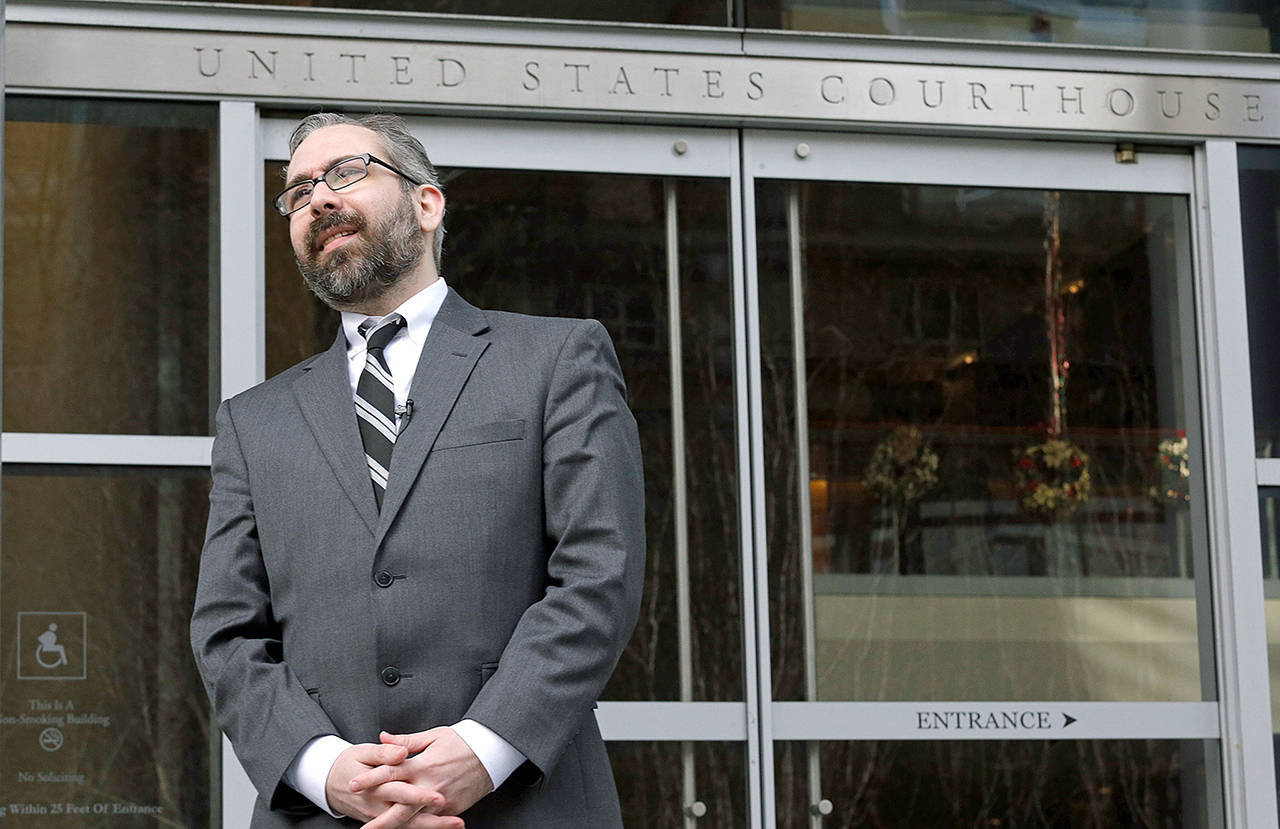By The Herald Editorial Board
Even as the 2020 presidential campaign ramps up, we’re still dealing with fallout from the last presidential election.
Enter the “faithless electors” — kids, if you’re looking for a band name, it’s yours — four members of Washington state’s Electoral College delegation who, rather than cast their votes in the Electoral College for Democrat Hillary Clinton following the election — as they had pledged to do — cast their votes for others. Doing so, under state law, earned them, including an Everett-area man, a $1,000 fine, a case that is now on appeal to the U.S. Supreme Court.
A quick refresher: U.S. presidents, since the Constitutional Convention of 1787, have not been elected by popular vote. Instead, the election’s winner is determined by the Electoral College, where all of a state’s delegates are awarded, winner-take-all, to the candidate winning a majority in that state. The number of state delegates uses the same rationale used to determine the size of each state’s delegation in the House of Representatives, plus the two senators. With 538 national electors, a candidate needs at least 270 to win the White House.
Usually, the outcome of the popular vote and the electoral vote are in alignment, but on five occasions — including the 2000 race between Republican George W. Bush and Democrat Al Gore and the 2016 race between Republican Donald Trump and Democrat Hillary Clinton — the two diverged with the Democratic candidates winning the popular vote and the Republicans winning the Electoral College vote and the presidency.
The four “faithless electors” and three others elsewhere in the nation bolted from their pledge. Everett’s Bret Chiafalo, calling himself a “Hamilton” elector — sorry; Lin-Manuel Miranda got to that one first — initially hoped to foil Trump’s election by offering to trade his vote for Clinton to an elector in another state pledged to Trump. The effort failed, but the “faithless” remained so on principle.
Legislation in the state Senate seeks to head off such protests in the future. Senate Bill 5074, would require parties and independent candidates to nominate electors and an alternate, and would disqualify an elector who refused to cast a ballot for the candidate winning the state’s popular vote, substituting the vote of the alternate, if necessary. It would also eliminate the $1,000 fine for electors who don’t vote as pledged.
It’s up to the Supreme Court to make a final ruling on the philosophical question of whether electors can use their own judgment in casting their ballot.
As for the state legislation, which has passed out of committee and is expected to get a vote on the Senate floor, while it would provide more certainty to the process, it doesn’t address the problem with the Electoral College’s occasional divergence from the popular vote.
Because of its structure, the Electoral College can give greater weight to the votes of those in states with smaller populations. Some have defended this as a plus precisely because it gives those smaller states a greater voice, but that acknowledgement is an argument against itself; a violation of the basic tenet of our representative democracy of one person and one vote.
Eliminating the Electoral College would require the heavy lift of a constitutional amendment, but another option is gaining support that would keep the college in place but reform it through a multi-state pact.
The National Popular Vote, an organization that seeks to give greater consideration to the popular vote, is asking state legislatures to pass a law that would award all their electors not to the winner of that state but to the candidate who wins the most popular votes in all 50 states and the District of Columbia. To enact the change, states representing 270 electoral votes — the same threshold that determines the presidency — would have to the adopt the popular vote bill.
Washington state adopted the legislation in 2009. Eleven other states — totaling 172 electoral votes — have passed similar legislation.
Thursday, Colorado’s House and Senate passed legislation that will add its nine electoral votes to the mix for a total of 181. Colorado’s governor has said he will sign the legislation. And earlier this month, legislation passed in New Mexico’s House that would add its five electoral votes.
In seven states, including Oregon, totaling 75 votes, it has passed one chamber, and the proposal has been considered in 16 other states totalling more than 120 votes.
The Electoral College, designed as fail-safe on the popular vote, is no longer necessary, if it ever was. The National Popular Vote compact corrects that.
Video: A Teach with TVW Documentary explores the 2016 Washington State Electoral College and shows the struggle some electors had with their vote, while experts and state officials discuss how presidents are chosen in the United States. (Produced by TVW)
Talk to us
> Give us your news tips.
> Send us a letter to the editor.
> More Herald contact information.

























